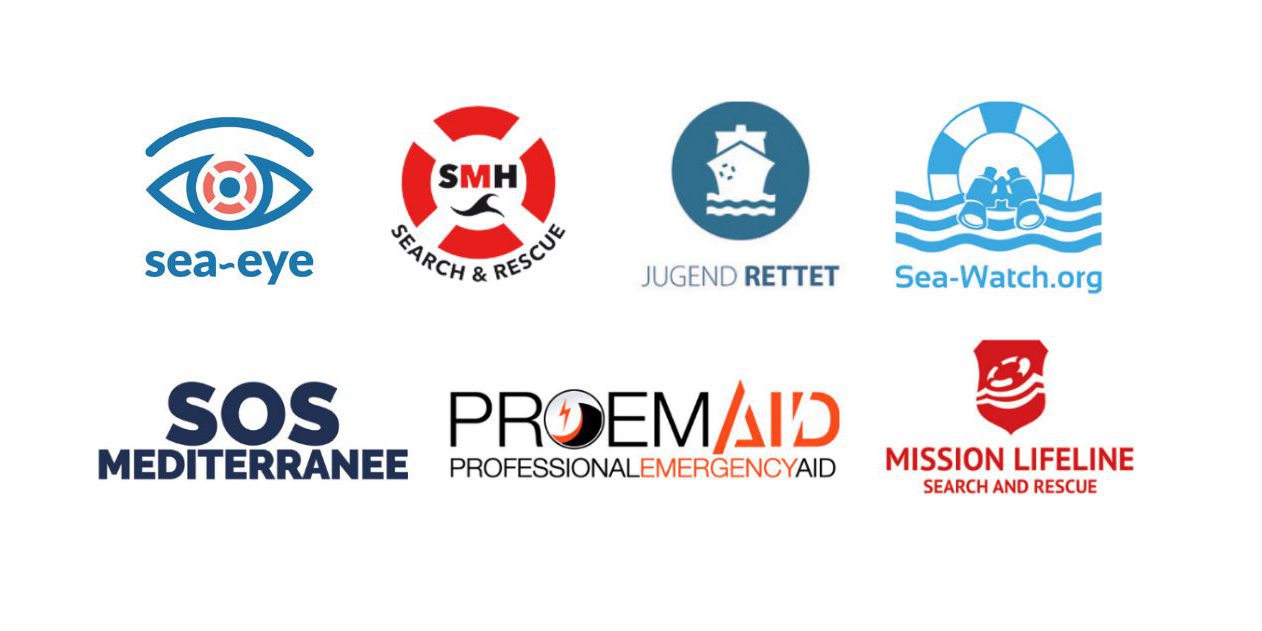As search and rescue organisations, we are grateful that thanks to the initiative of the Socialists and Democrats Group, we were nominated for the Sakharov Prize for Freedom of Thought. This nomination is acknowledging the vital role which NGOs have played in saving human lives during the past years. Last year alone, NGOs have conducted about 40% of the rescues in the Central Mediterranean.
This year constitutes an extraordinary year for the protection of human rights – and simultaneously their devaluation – as it marks the 70th anniversary of the UN Declaration of Human Rights. However, in light of current EU migration policies, there is no cause for celebration. Over 2.100 people died this year, trying to reach safety in Europe. EU member states should use this anniversary to evaluate European migration policies with regards to the values agreed by the international community after the atrocities of the Second World War.
As NGOs, it is our role to critically remind the EU member states of the deadly consequences of their policies and of their legal responsibilities, and to shed light on human rights violations taking place in the Central Mediterranean at this very moment. We are representing European civil society and jointly stand for and defend the most basic principle of all: every single life is of equal value and worth saving.
1. Saving lives should be the utmost priority of all EU member states and should come before any political consideration
The EU shares this principle, as stated in Art.2 of the Fundamental Rights Charter, saying that everyone has the right to life. Saving lives should therefore be the utmost priority of all EU member states. While the political and humanitarian crisis in the Mediterranean is on-going and civil rescue ships are largely blocked from saving lives, people either die at sea or are being pulled back to Libya, where they face arbitrary detention, torture, exploitation and sexual violence on a daily basis. Migration policies cannot be made at the expense of people in distress.
The right to life naturally translates into the right to rescue.
We strongly condemn the EU sponsored mechanism of refoulement by proxy. This mechanism is based on interceptions by Libyan assets and forcible returns to a system of arbitrary, unlimited and unlawful detention in Libya, a country with numerous accounts of grave abuses and atrocities being committed against migrants and refugees. This system comprises a cycle of abuse which further enables and increases human rights violations.
2. An effective SAR system must be established in the Central Mediterranean that is compliant with international law
EU member states need to establish an effective, coherent and transparent approach to sea rescue that is compliant with international law. Rescue at sea must always be carried out in compliance with international maritime and human rights law and cannot terminate with disembarkation in an unsafe place.
The SAR NGOs present today demand that EU member states establish a European rescue programme to ensure that survivors are being disembarked promptly and in the nearest safe harbour as stated in maritime international and refugee law. EU member states need to acknowledge their humanitarian and legal responsibilities instead of further shifting responsibility to countries of departure and transit.
It is moreover crucial to support local administrations, communities and federal states which express their willingness to receive people rescued at sea, who demonstrate that the reception of asylum-seekers is possible and widely welcomed.
3. Stop criminalisation of civil search and rescue ships
EU member states are actively preventing civil rescue ships from saving lives. All NGOs present today are facing varying forms of criminalization, ranging from alleged registration issues, the withdrawal of flags, criminal charges against crew members and impoundments of vessels to allegations concerning unlawful waste disposal. NGO workers could go to jail for years. The wide range of allegations clearly demonstrates the underlying aims of such accusations.
Individual European member states would rather unite against the civil rescue fleet – which has consistently taken up the responsibility to save lives and uphold human rights where European member states have disregarded theirs – than unite to prevent deaths at sea.
The continuous attacks we are facing directly lead to further avoidable deaths at sea.
We urge EU member states to respect and protect the space for humanitarian action.
In fact, our demands represent long-standing European values. By urging EU policy-makers to stop criminalising humanitarian work, to prioritize saving lives and to find a humane solution in form of an effective European search and rescue system, we are defending the very basis of the EU, which is the values on which the EU was founded. These values are embedded in the EU treaties; human dignity, freedom, democracy, equality, the rule of law and respect for human rights. A liberal, emancipatory Europe is what is at stake. Our values as Europeans are being defended not only, but also, in the Mediterranean.
Whoever puts migration management above respect for human rights endangers the very foundation of the European Union.











